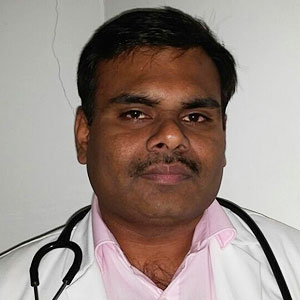
NEVER TOO OLD TO BE HEALTHY
Globally the percentage of people over the age of sixty is increasing rapidly and will reach thirty percent in 2050. In India, about 7% of the population is over age of 60 and the number is expected to increase rapidly. But what is happening to the people who are supposed to care for them? The joint families are giving way to nuclear families which essentially means that the moment children get married, they move away from home to establish their own household leaving the elder generation. The younger generation has also increasingly found it necessary to move out of the state to look for jobs, further compounding the problem. Women, the traditional caregivers for the elderly, are increasingly taking jobs. Traditionally the elders enjoyed prominent status in the family. This is no longer the case.
However, even isolated senior citizens with multiple medical problems can also lead a healthy life with the care of a Geriatrician.
GERIATRICS is a medical discipline concerning diseases of the elderly, focusing on disease prevention and improving quality of life.
THE FOCUS OF GERIATRIC CARE
Geriatricians focus on function rather than on the problem because of the heterogeneity in the older population. The focus is on independence rather than freedom from disease and on the maintenance of independent living, which requires good physical, psychological, cognitive, social, economic and environmental functions.
GERIATRIC ASSESSMENT
Good geriatric care requires intensive, meticulous effort. Functional assessment is defined as a systematic, multidimensional, detailed evaluation of an individual’s ability to perform various tasks associated with independent living. The goals of functional assessment are problem detection, planning, prevention and monitoring. Geriatric assessment has been shown to have many benefits, some of which are given below:
- Increased diagnostic accuracy
- Improved functional status
- Improved survival
- Decreased hospital use
- Decreased costs
- Decreased medication use
APPROACHING THE OLDER PATIENT
Geriatric Medicine focuses on preservation of function and quality in elderly life rather than on merely diagnosing and curing disease. The practice of geriatric medicine also encompasses dealing with social and psychological problems. Practitioners of geriatric medicines also recognize the importance of dealing with the family and caregivers also. In fact in geriatrics, it is said that behind every patient is a hidden patient who is the caregiver.
The elderly also show difference in their response to medications. The many medicines commonly used in young patients may not be suitable to elderly patients. Many elderly suffer from multiple medical problems like hypertension, diabetics, heart disease and associated with age related changes such as diminished vision, hearing impairment, memory loss.
Hence, in approaching the older patient, it is important to have a positive attitude i.e. instead of viewing the multiplicity of problems as a time consuming hindrance to expeditious practice, it should be viewed as stimulating challenge to medical expertise.
Pointers for working with the older patient are listed below:
- Do not be ageist
- Do be patient
- Optimize communication
- Make the patient safe and comfortable
- Get the history from the patient and family
- Get a full medication list
- Assess caregiver stress
PREVENTIVE GERIATRICS
“An ounce of prevention is worth a pound of cure”. Perhaps, this is much opted in the practice of treatment of elderly persons. Meticulous attention to diet is very important as it is so easy for the elderly to suffer from malnourishment given their decrease in taste sensation, their food preferences and restrictions and disabilities like difficulty in chewing. Exercise is the all important mantra for the maintenance of good health and independence in the elderly. “Use it, or lose it” is a popular saying in Geriatric circles. Cholesterol control is another very important preventive measure. That cessation of smoking helps even at advanced age has wide acceptance.
Geriatric medicine promotes wellness and preventive care with an emphasis on care management that helps patients maintain their independence. They tend to have an interdisciplinary approach to medicine and work with a coordinated team of Geriatric nurses, Geriatric physician and Geriatric physiotherapist, other health care professionals. The geriatrician’s role is rapidly expanding as a result of the growth of the elderly population. Many people do not think they are old enough to see a geriatrician. However, experts say if one shows any of the following signs, it is advisable to consult with a geriatrics doctor: a decline in function, either activities of daily living or instrumental activities such as cooking food, memory-loss problems, a suspicion of dementia or depression complicating medical illness, etc.
GOALS FOR THE CARE PLAN
The goal of the care plan should be to achieve maximum patient independence and minimum caregiver stress. This means that the physician must not only plan to treat the diseases present; he must also plan to prevent any further impairment as far as possible. If there are many problems present it may be necessary to focus first on the problems most distressing to the patient and / or the family. The planning must be done in collaboration with the patient and family. Accurate assessment of the capabilities of the patient and the family or care givers is essential in making a good, safe discharge plan. Ongoing assessment after discharge must be done to allow the physician to monitor how the care plan is working and to modify it as needed.
In a nutshell even though the ship is navigated by a group of sailors, it will go directionless in the absence of a captain and the captain of the old age looking for the lighthouse to reach the safe place becomes the Geriatrician.

Article by Dr.N.Lakshmipathy Ramesh, Consultant Geriatrician, Kauvery Hospital

